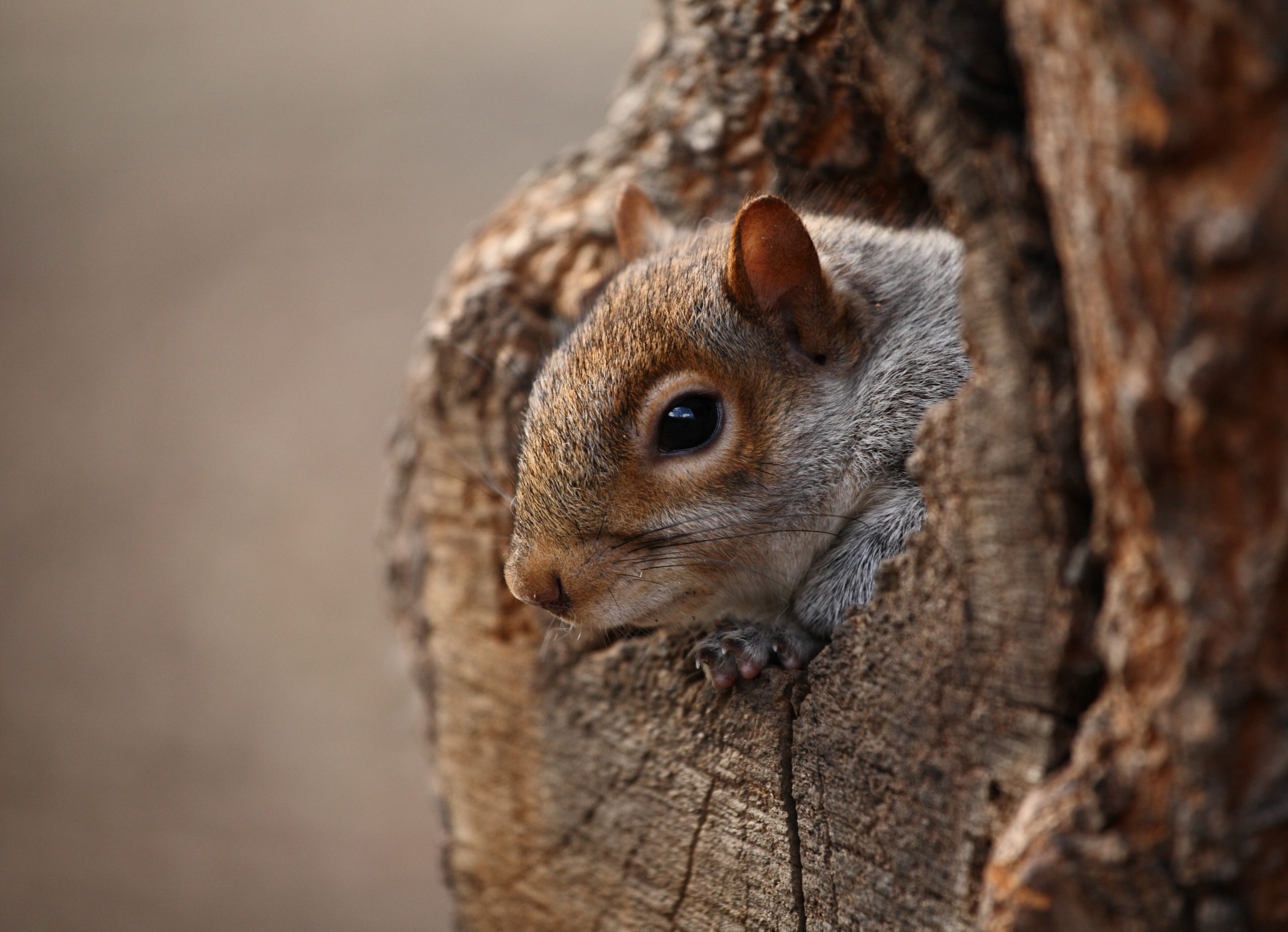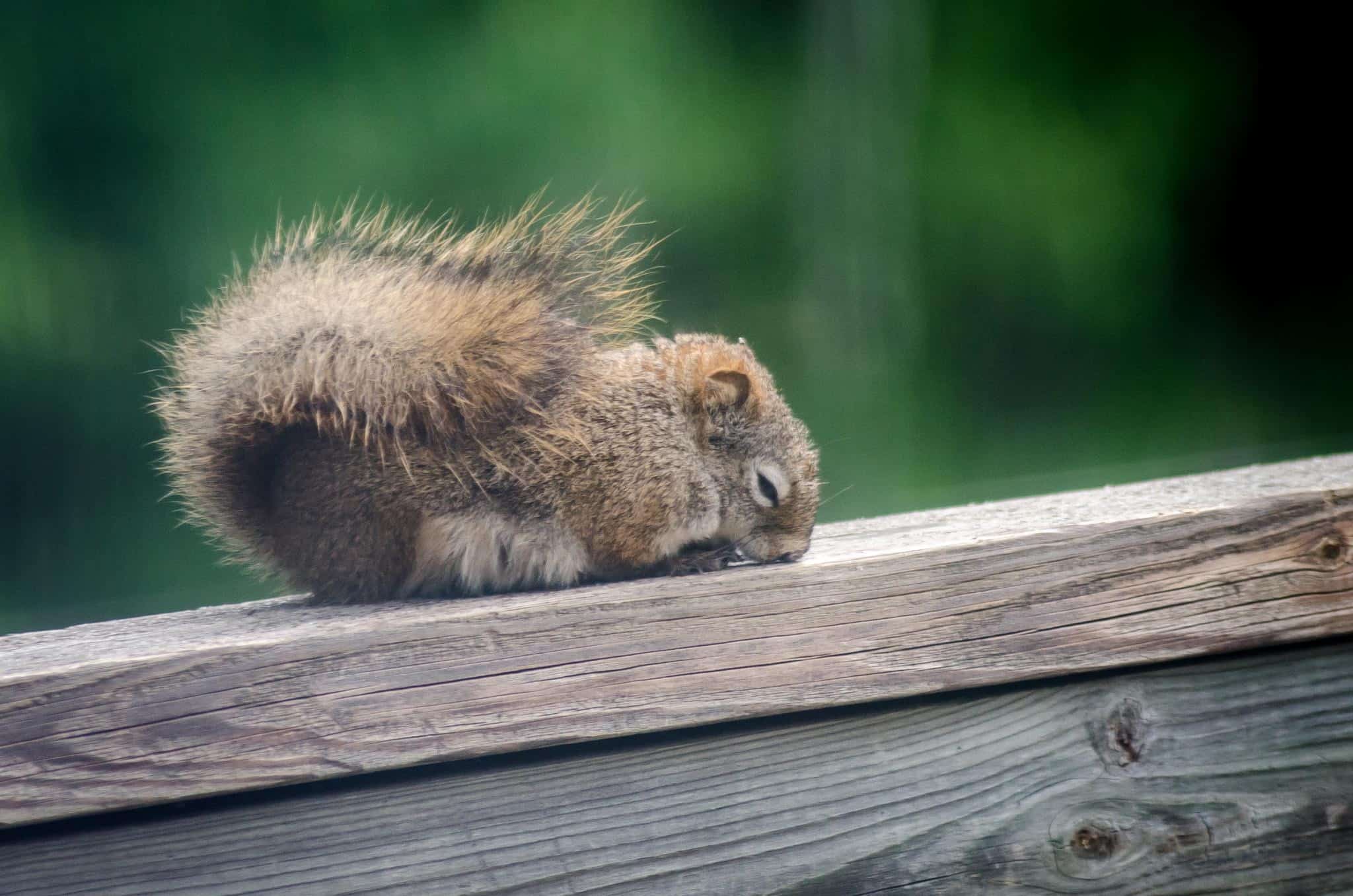Do squirrels sleep at night? Ever wondered what these bushy-tailed critters do after the sun goes down? Squirrels are one of the most fascinating animals we see every day, but their nighttime habits remain a mystery to many. If you’ve ever caught yourself staring out the window, pondering their nocturnal antics, you’re not alone. Let’s dive into the world of squirrels and uncover the truth about their sleeping patterns.
Picture this: it’s a sunny afternoon, and you spot a squirrel darting across your backyard, collecting nuts and chattering away like it’s got all the energy in the world. But once the stars come out, where do they go? Do they hibernate in their cozy nests, or are they out there pulling all-nighters? We’re here to answer that question and more.
Before we get too deep into the details, let’s set the stage. Squirrels are not just cute little creatures; they’re highly intelligent and adaptable animals. Their behavior changes depending on the environment, season, and even the species. So, whether you’re a wildlife enthusiast or just someone curious about these backyard buddies, stick around because we’re about to drop some serious squirrel knowledge.
- Subhashree Sahu Nudes Video The Untold Story And What You Need To Know
- Paige Bueckers Nude Debunking Myths Respecting Privacy And Highlighting A Stars Journey
Understanding Squirrel Sleep Patterns
When it comes to squirrels, their sleep habits are as intriguing as their acrobatic skills. Most species of squirrels are diurnal, meaning they are active during the day and rest at night. This behavior aligns with their natural predators and the availability of food sources. But does this mean they sleep soundly through the night, or are there exceptions to the rule?
Diurnal Creatures and Their Daily Routine
Being diurnal, squirrels spend their days foraging for food, building nests, and preparing for the colder months. During the night, they retreat to their nests, which are usually located in tree hollows or leafy structures called dreys. These nests provide insulation and protection from predators and harsh weather conditions.
- Squirrels typically sleep for 6-8 hours at night.
- They enter a state of deep rest, conserving energy for the next day’s activities.
- Some species may nap during the day if food is scarce or the weather is unfavorable.
While their nighttime routine might seem straightforward, there are nuances depending on the species and environment. For example, ground squirrels may have slightly different habits compared to tree squirrels.
- 3movierulz Kannada Movie 2025 Your Ultimate Guide To The Latest Blockbusters
- Martin Lawrence Height The Untold Story Behind The Iconic Comedianrsquos Stature
Do All Squirrels Sleep the Same Way?
Not all squirrels follow the same sleep schedule. Different species exhibit variations in their behavior, especially when it comes to hibernation and torpor. Let’s break it down:
Tree Squirrels vs. Ground Squirrels
Tree squirrels, like the Eastern Gray Squirrel, are primarily diurnal and do not hibernate. They rely on stored food caches to survive the winter. On the other hand, ground squirrels, such as the thirteen-lined ground squirrel, enter a state of hibernation during the colder months. During hibernation, their metabolic rate slows down significantly, allowing them to survive without food for extended periods.
The Role of Torpor
Torpor is a temporary state of reduced metabolic activity that some squirrels use to conserve energy. Unlike hibernation, torpor can occur on a daily basis, especially during extreme weather conditions. For example, during a particularly cold night, a squirrel might enter a state of torpor to lower its body temperature and reduce energy expenditure.
This adaptation is crucial for survival, especially in regions with harsh winters. By adjusting their sleep patterns and metabolic processes, squirrels can thrive in diverse environments.
Where Do Squirrels Sleep at Night?
Now that we know squirrels sleep at night, the next question is: where do they sleep? The answer depends on the species and the availability of suitable habitats.
Nests in Trees
Tree squirrels build nests called dreys, which are constructed using leaves, twigs, and other natural materials. These nests are usually located high up in trees, providing safety from ground-dwelling predators. Some squirrels may also use tree hollows or cavities as shelter, especially during the winter months.
Underground Burrows
Ground squirrels, as the name suggests, prefer underground burrows for their sleeping quarters. These burrows can be quite extensive, with multiple entrances and chambers for different purposes. The burrows offer protection from predators and help regulate temperature, making them ideal for both sleeping and hibernation.
Regardless of the location, squirrels prioritize safety and comfort when choosing a place to sleep. Their nests and burrows are meticulously constructed to ensure they have a peaceful night’s rest.
Do Squirrels Stay Awake at Night?
While most squirrels sleep at night, there are exceptions to the rule. In certain situations, squirrels may stay awake or become more active during the evening hours. Let’s explore some of these scenarios:
Nocturnal Behavior in Squirrels
Although squirrels are primarily diurnal, some species, like the flying squirrel, are nocturnal. Flying squirrels are active at night, using their gliding abilities to move between trees in search of food. Their large eyes and heightened senses allow them to navigate the darkness with ease.
Factors That Affect Sleep Patterns
Several factors can influence a squirrel’s sleep behavior, including:
- Seasonal changes: During the winter, squirrels may adjust their sleep patterns to cope with shorter daylight hours and colder temperatures.
- Predator presence: If a squirrel senses danger, it may remain alert even during its usual sleeping hours.
- Food availability: In times of scarcity, squirrels may extend their foraging hours into the evening.
Understanding these factors helps us appreciate the adaptability of squirrels and their ability to thrive in various environments.
How Much Do Squirrels Sleep?
On average, squirrels sleep for 6-8 hours a night, but this can vary depending on the species and environmental conditions. During the winter, some squirrels may sleep for longer periods, especially if they are hibernating or entering a state of torpor.
The Importance of Sleep for Squirrels
Sleep is essential for squirrels, just as it is for humans. During sleep, squirrels conserve energy, repair tissues, and process information gathered during the day. This restorative process ensures they are ready to tackle the challenges of the next day, whether it’s finding food, avoiding predators, or building nests.
Do Squirrels Dream?
While we can’t ask a squirrel directly, research suggests that they do experience a form of REM sleep, which is associated with dreaming in humans and other mammals. During REM sleep, squirrels may twitch their whiskers, move their eyes, or make small vocalizations, indicating they are experiencing some form of dream activity.
Although we may never know exactly what squirrels dream about, it’s fun to imagine them replaying their daily adventures or practicing their acrobatic skills in their sleep.
Fun Facts About Squirrel Sleep
Here are some interesting tidbits about squirrel sleep habits:
- Squirrels can sleep upside down, thanks to their strong claws and flexible bodies.
- They often curl up into a tight ball to conserve heat during cold nights.
- Some squirrels share nests with others, especially during the winter, to stay warm and safe.
These quirky behaviors highlight the resourcefulness and social nature of squirrels, making them even more endearing to us.
Conclusion: Do Squirrels Sleep at Night?
So, do squirrels sleep at night? The answer is a resounding yes! Most squirrels are diurnal creatures that spend their days foraging and their nights resting in cozy nests or burrows. However, there are exceptions, such as nocturnal flying squirrels and those that adjust their sleep patterns based on environmental factors.
Understanding squirrel sleep habits not only satisfies our curiosity but also highlights the incredible adaptability of these animals. By conserving energy during the night and preparing for the challenges of the day, squirrels have mastered the art of survival.
We hope this article has shed some light on the mysterious world of squirrel sleep. If you enjoyed learning about these fascinating creatures, don’t forget to share this article with your friends and family. And who knows, maybe next time you see a squirrel darting across your yard, you’ll appreciate the hard work and rest that goes into their daily lives.
Table of Contents
- Understanding Squirrel Sleep Patterns
- Diurnal Creatures and Their Daily Routine
- Do All Squirrels Sleep the Same Way?
- Tree Squirrels vs. Ground Squirrels
- The Role of Torpor
- Where Do Squirrels Sleep at Night?
- Nests in Trees
- Underground Burrows
- Do Squirrels Stay Awake at Night?
- Nocturnal Behavior in Squirrels
- Factors That Affect Sleep Patterns
- How Much Do Squirrels Sleep?
- The Importance of Sleep for Squirrels
- Do Squirrels Dream?
- Fun Facts About Squirrel Sleep
- Conclusion: Do Squirrels Sleep at Night?
- Morgan Kohan Nude Unveiling The Truth Behind The Sensation
- Alice Rosenblum Erome A Deep Dive Into The Phenomenon And What Makes Her Stand Out


